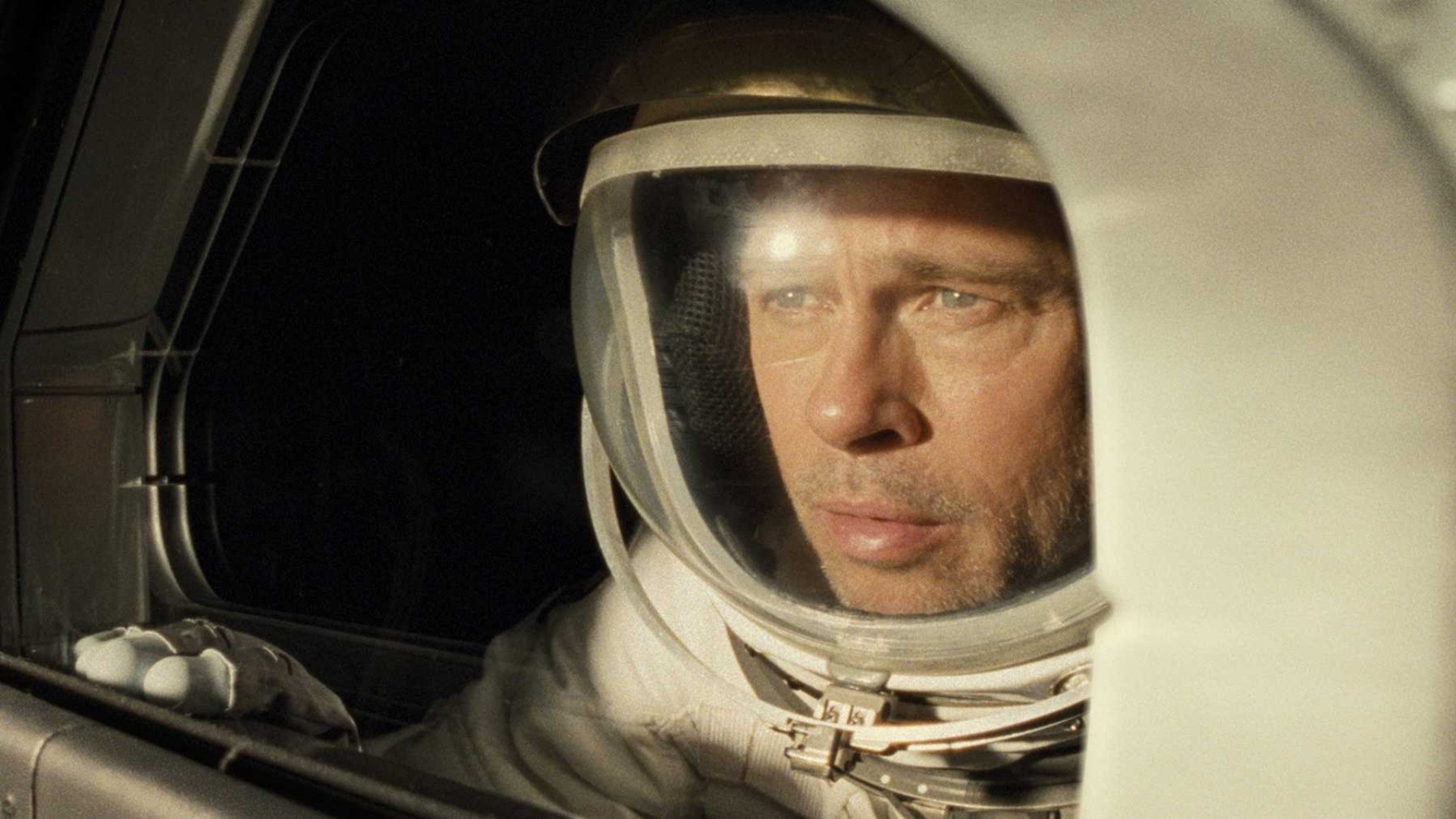Ad Astra ending explained by director James Gray
**Spoilers for the Ad Astra ending ahead**

Where to begin with Ad Astra? The science-fiction movie, directed by James Gray, makes for one of the most inventive and thought-provoking stories ever told on the big screen – one that asks you, the viewer, to reconcile with all those Daddy issues you have locked away in the depths of your heart.
So, what happens to Brad Pitt's astronaut, Roy, after he travels to the outer reaches of our solar system in search of his believed-to-be-dead father (Tommy Lee Jones) who happens to be an international hero? We spoke to the movie's director and co-writer Gray about the Ad Astra ending. But first of all...
**Spoiler warning: the following article contains details regarding the plot and ending of Ad Astra. Bookmark this page and come back later if you wish to remain spoiler-free**
Ad Astra begins with Roy falling victim to an energy surge from Neptune caused by the Lima Project, a famous space station that saw a crew of scientists attempt to contact alien lifeforms. After crashing down to Earth and almost dying, Roy is approached by United States agents, who explain that the Lima Project has become active again after 16 years. They also believe that Clifford, Roy's father, is still alive and currently manning the Lima Project.
Roy is tasked with travelling to Mars, where he can send a message to his father and hopefully put an end to the power surges crashing through the solar system. After some close encounters with space pirates on the Moon, plus nearly being killed by a baboon, Roy arrives on Mars where he learns the truth: that his father killed the other crew members of the Lima Project because they wanted to turn home and were, therefore, endangering the mission.
After learning this, the intrepid astronaut – who has been imprisoned by the United States – realises that he's the only one who can stop his father. He sneaks onto a ship heading to Neptune and accidentally kills the crew, mirroring his own father's vain journey to the planet. When father and son finally confront each other, Roy pleads for Clifford to "come home" rather than stay on the ship. "I am home, son," he replies. Roy understands that Clifford's too obsessed with finding life somewhere in the universe – despite there being no evidence to the contrary – to ever leave.
Roy knows, though, that the Lima Project must be destroyed as the space surges are causing carnage on Earth. After some space acrobatics, Roy blows up the space station, leaves his father behind, and returns to Earth on a pod. It's a bombastic ending, but one that leaves us with a couple of realisations.
Sign up for the Total Film Newsletter
Bringing all the latest movie news, features, and reviews to your inbox
First off, we can see that Roy's obsession with space, like his father, has made him distant from his family. Whereas Clifford was literally distant from Roy (on the other side of the solar system), Roy was emotionally distant from his wife (Liv Tyler) and son.
Ad Astra also posits that there's no life outside our solar system. Whereas Stanley Kubrick's 2001: A Space Odyssey pictured a black monolith helped mankind evolve, Ad Astra wants us to forget about alien intervention. "In that movie, Kubrick talks about aliens, are they good or bad?" James Gray tells Gamesradar+. "But we wanted to do the opposite and say, 'There’s nothing out there, human beings are all we’ve got. Don't look out there for false Gods. Little green men won’t come here to save us.'"
And while looking up at the stars and seeing no other life may sound pessimistic, Gray believes Ad Astra's has a hugely optimistic message.
"There may well be alien life, but we've been sending signals out there since the '60s and we haven’t heard anything," he says. "There's a term for it, the "Fermi paradox" – why the silence if alien life is abundant? Well, it means we can’t communicate with it. And, if we can’t communicate with it, and we can’t reach it in our lifespan, then what the hell use is it? For all intents and purposes, it doesn’t matter if there are people on planet RU72V98 or whatever, 200 light-years from home. Who cares? You can't communicate with it because it’s too far away.
"So what’s the answer? It’s not in being alone. It's not in communication. It's in seeing a Praying Mantis on a leaf that my son will show me. Finding beauty in life thanks to your wife and children. As corny as that sounds, isn’t that all that we have? What else is there? It seems that anything else is a fantasy bullshit projection where you can get lost in it. It’s a distraction. I kind of like human beings, even though we’re flawed and screwed up. I’m happy to be a person."
Read the full interview with Gray, in which we touch upon Ad Astra's similarities to Apocalypse Now, as well as the working of the movie industry, here.

Jack Shepherd is the former Senior Entertainment Editor of GamesRadar. Jack used to work at The Independent as a general culture writer before specializing in TV and film for the likes of GR+, Total Film, SFX, and others. You can now find Jack working as a freelance journalist and editor.


